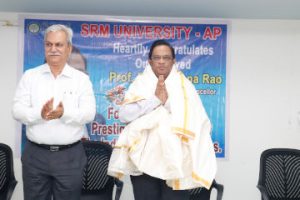All Management News
- Dinesh K December 6, 2019
- Divya Naga Pavani Tanikella December 6, 2019
- Job opportunities after Btech Electrical Engineering December 3, 2019
What to do after a BTech in electrical engineering?
If you grew up fascinated by Nikolas Tesla and Thomas Edison and draw up blueprints of energy-saving toasters and talking TVs for fun, a bachelors in electrical engineering may be the right career choice for you. But clichés aside, did you know electrical engineers work in almost every industry you can think of, from GPS technologies to the army to robotics to filmmaking? Basically, any industry which uses electricity-powered devices and technology relies on electrical engineers. What’s more, electric engineering (EE) is one of the traditional branches of engineering, which is endlessly adaptable to fields of artificial intelligence and machine learning. Given the incredibly diverse types of electrical engineering careers, a BTech/ BE in this field can be extremely rewarding. But before we look at potential job opportunities in the electrical engineering field, let’s ask some basic, but important, questions:
What does an electrical engineer do?
An electrical engineer designs, creates, tests, and maintains electrical equipment. This equipment can range from simple circuits in automobiles to electric prosthetic limbs to parts of spaceships and satellites!
Continue reading → - 7 Best Jobs in Civil Engineering December 3, 2019
Gone are the days when you thought civil engineering offered just one kind of job; today, you can have many exciting career paths after civil engineering! From traditional roles in construction to opportunities in nuclear plants, civil engineering jobs in India are more varied than ever before. Apart from going for higher studies, here are the top 7 jobs you can take up right after a civil engineering bachelor’s degree:
- PSU Jobs for Civil Engineer
Civil engineers are always high in demand in public-sector undertakings, such as Hindustan Aeronautics Limited (HAL) and NPCIL (Nuclear Power Corporation of India Limited). To apply for a PSU job, you need to take the competitive Graduate Aptitude Test in Engineering (GATE). If you score well, then you will be termed eligible in any of the PSUs. Apart from job security, you also get an attractive starting salary of Rs. 24,900 – Rs. 50,500 - Government Jobs for Civil Engineer
Ever since the 6th and 7th Pay Commission revisions have rolled in, civil engineering salaries in India, especially, the government sector pay better than ever. Through the GATE, you can apply for a civil engineering job at government bodies, such as Railways and Indian Space Research Organization (ISRO). Starting salaries for assistant engineers range from Rs 20,00 to Rs 50,000, depending on your GATE score. - Nuclear Plant Engineer
It may surprise you, but government-run nuclear energy plants also hire civil engineers to design and maintain power station, reactors and more. Since the safe use of nuclear energy is such an emerging field, a career as a nuclear plant engineer with bodies such as Bhabha Atomic Research Centre (BARC) is a great alternative career for civil engineers. GATE required. Salary range: Rs 20,000 to Rs 50,000
- PSU Jobs for Civil Engineer
- WHAT ARE THE BEST GD TOPICS FOR ENGINEERING PLACEMENTS? December 3, 2019
As your final BE semester rolls around, Indian and multinational corporations start visiting your campus for recruitments. Or you may be in the middle of admissions to a business school. In either case, you are likely to face a group discussion or a GD round as part of the selection process.
So, what exactly happens in GD rounds and why are they so important?
In a typical GD round, candidates are divided into groups of 8 to 10 members. Each group of candidates is assigned a topic or a situation, allotted time to brainstorm, and then asked to discuss the topic among themselves for 15-45 minutes. A panel of judges tests each group. Every individual’s ability is evaluated by how they articulate their point of view and communicate it effectively with group members. So, what can your performance in a GD tell an evaluator about you? Quite a bit actually. Organizations rely on GDs as a screening tool because working and communicating seamlessly in a team is one of the biggest markers of your success as a manager. Not only that, but GD rounds also evaluate candidates for awareness, the ability to lead and listen, and the ability to conceptualize. While all this may seem a bit daunting, remember there is no reason to get intimidated by a GD. Preparing yourself in advance for a GD round is half the battle won.
Continue reading → - 20 Bachelor degree after Class 12th! December 3, 2019
Wondering what your career options are after Class XII? Today, graduate and post-graduate universities in India offer many specialized, cutting-edge courses customized to your unique interests, which can help you kickstart a new career in tomorrow’s competitive job market. Here are the best courses to study at university, according to your stream!
Courses after 12th with Arts
A career in the Arts is often underplayed, but the truth is a grounding in liberal arts is extremely important in the development of emotional intelligence as well as social awareness, factors which distinguish leaders from managers in the long-term. Not only that, the arts also actually offer many degrees that open the doors to great career choices!
Continue reading → - 7 CAREER OPTIONS AFTER A BACHELORS IN BUSINESS ADMINISTRATION December 3, 2019
If you’ve been dreaming of auditioning your next big business idea on Shark tank since the age of 10 or can’t wait to dive into the world of management and entrepreneurship, a Bachelors in Business Administration (BBA) is the right course for you. Launched less than 30 years ago in India, a BBA was one of the first professional Bachelor’s degrees on the block, excepting the fields of engineering and medicine. Since then, the course has only grown in popularity, allowing you a chance to get a good job right after college. Before we explore what kind of jobs are available after a BBA, it is helpful to know what you’ll be studying in a well-designed BBA course.
What is a BBA?
Typically, a three-year long course, a BBA includes core modules in business studies, economics, marketing, and computer science. Since it a professional course, the BBA emphasises project work & practical, hands-on training in management, leadership skills, teamwork, and communication abilities. This is carried out through case studies, visits to work sites, and internships. The end goal of a BBA is to leave you career-ready for management, in case you don’t want immediately to pursue higher studies. Another question you may have is how to get a job after your BBA. Most good institutes offer campus placements, primarily if you have scored well in your course, so doing well in academics always helps. Even if your institute doesn’t offer placements, many Indian and multinational companies (MNCs) hold recruitment drives for entry-level managers, analysts, and researchers.
Continue reading → - Ravi Kant Kumar November 20, 2019
- Bennet Benny (B.Sc. Physics, second year) wins Sakura Internship Program-2019 at Japan Advanced Institute of Science and Technology (JAIST) November 5, 2019
Bennet Benny has been honoured with the opportunity to attend an internship under the supervision of Prof. Ryo Maezono at JAIST, Japan. Established in 1990, JAIST is one of the research-intensive institutes for post-graduate studies located in the centre of Ishikawa Science Park (ISP). The internship is funded by the Japan Science and Technology Agency (JST), a government funding agency.
Under the guidance of Prof. Ranjit Thapa, Bennet had applied for the internship in March. This internship begins on 16th December and will continue till 24th December,2019. Bennet will be given hands-on tutorial on electronic structure calculations using DFT and QMC computational methods on one of the supercomputers located at JAIST. He will be joined by five other students from Bandung Institute of Technology, Indonesia.
“I am very excited to be given this opportunity as it will provide me with excellent practical experience and ample exposure that will be helpful to build my career.”, says Bennet and further expresses his gratitude towards Prof. D Narayana Rao, Pro-Vice-Chancellor, SRM University AP, and Dr. Sabyasachi Mukhopadhyay, Assistant Professor, Department of Physics for their immense encouragement and guidance.
Continue reading → - Pro VC, Prof. D. Narayana Rao awarded with Fellowship of the Indian Science Congress October 26, 2019
Prof. D. Narayana Rao receives honoured for his outstanding contributions to Physical Sciences
Prof. D. Narayana Rao, Pro Vice Chancellor, SRM University-AP, Amaravati has been conferred with the Fellowship of the Indian Science Congress (FISC) for his outstanding contributions to Physical Sciences.

The Fellowship has been awarded to Prof. Rao by the Indian Science Congress Association at their Council Meeting held in Bangalore on 16th October 2019. The main objective of ISCA is to advance and promote the cause of Science in India, recognize and support excellence in scientific research, technologies and innovations. Prof. Rao’s outstanding achievements and sustainable significant contributions to sciences were recognised and honoured.

SRM University AP organized a felicitation ceremony for Prof. Rao on this occasion where he encouraged the professors to pursue research by stating its significance. The ceremony was chaired by Dr. D Gunasekaran (Registrar), Dr. B Sivakumar (Deputy Registrar), and Dr. Anil K Suresh (Associate Professor, Biotechnology) who congratulated Prof. Rao on his achievements along with the faculty and staff members of the university.
Continue reading →

